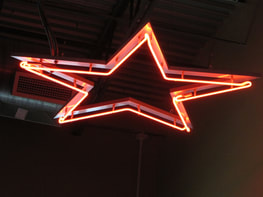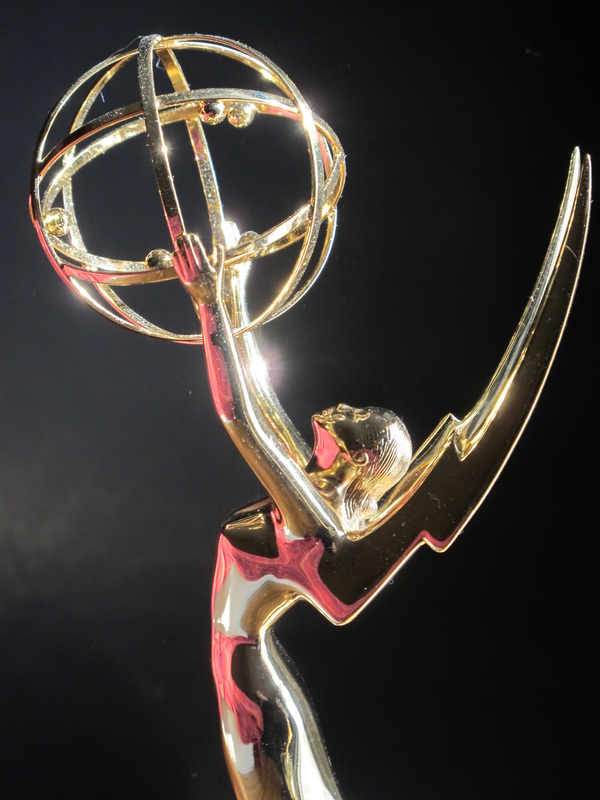 Image © by Brian E. Faulkner
Image © by Brian E. Faulkner “Seven seconds,” I said. He said much less – and today he’d be right. In this age of massive digital impressions, deciding in favor of a brand could be nearly instantaneous, at least for brands that have successfully embedded themselves in people’s minds. Think about Fox News or The Colbert Report. Mention either brand and you get an immediate, almost visceral, reaction. The same for Coke and Pepsi (but with less intensity). If you’re a cola fan, you’ve already got your mind made up.
The brands have done their jobs.
However, a research brief cited today by The Center for Media Research suggests that “the average consumer spends 13 seconds purchasing a brand in-store” and 19 seconds more online. The research originated with the Ehrenberg-Bass Institute of Marketing Science (“Shopping Takes Only Seconds”) and was commented on in the article by Randall Beard, president of Nielsen North America. Beard suggests that most consumers don’t “engage” with the vast majority of brands as much as they just buy them, giving marketing execs an “unrealistic and overly brand-centric view” of their brands’ importance in people lives – although he makes exceptions for a “limited set of high involvement categories and brands.” Like expensive cars but maybe not soap.
“People’s lives are already full,” the article noted, “and most people simply don’t have the time or energy to engage with brands in any meaningful way. These consumers most often default to making purchase decisions based on simple habit (previous purchase or ‘instinct’)”.
My take on this is that if marketers have done an effective job over time, a positive “thought” about their brand will have become stuck to the shopper’s mind, making the pathway to “Yes!” nearly instantaneous. Sure, call it "instinct".
The example they used was GEICO, which is said to have good “mental availability.” But the Energizer Bunny offers an even better example. He lives in my mind (and no doubt other minds) with a clear connection to product benefits, unlike the GEICO gecko, who is a pitchman for the product but does not inhabit it like the Bunny does. By the way, when was the last time you saw the energetic pink bunny “going and going” on TV compared to the nearly omnipresent green lizard?
It may simply be that people love the Energizer Bunny but only like the GEICO gecko. The Bunny is “invested with mental or emotional energy” (another definition of cathect) whereas the Gecko is merely entertaining. The word cathect comes to mind (in psychoanalysis: to concentrate psychic energy on a particular person, thing, or idea).
Apple is a great example of cathect branding because of people’s emotional or mental connection to both its products and its brand. So is Mercedes-Benz, which occupies prime mental real estate in the luxury sedan market. Cadillac used to be called the “Standard of the World” -- and yearns to be so again.
APCO Insight has identified eight emotions that connect people and brands. They include understanding, approachability, relevance, admiration, curiosity, identification, empowerment and pride.
“The best brands are those that build a strong, enduring emotional attachment with consumers,” says Byran Dumont, president of the research consultancy, “in addition to acting as a highly predictive tool for consumers’ purchase choices.” Their findings, presented as the 100 Most Loved Companies, were gathered from surveys of more than 70,000 people over ten years about 600 of the world’s largest corporate brands in 15 international markets. (http://tinyurl.com/madelmz)
American brands In the top 10?
#1 – Disney: the brand has a strong emotional link
#2 – Yahoo: despite its troubles, devotees understand the brand and find it approachable
#3 – Google: people take pleasure in buying into the brand
#4 – Sony: respondents are curious, want to know more about the company
#7 – Netflix: plays a meaningful role in people lives
#8 – Whole Foods: is admired by its customers (Publix was #43, Kroger #52).
#9 – Apple: shows empowerment and brand admiration).
#10 – Lowe’s: customers are comfortable with this home improvement store
The Home Depot is #54. Interestingly, Target is #21, but WalMart apparently didn’t make the cut. Discover (#51) and CBS (#83) are the only TV channels in the Top 100. The sole hotel chain? Marriott. Starbucks? #96!
So it’s more than mere brand awareness that drives these placements – that’s all too easily stoked with media dollars. There’s something else at work here. These Top 100 brands are … loved! It’s a heart thing -- people get them. And that takes only half a microsecond.
TakeAway: Do customers connect to your brand? With their heads? Or their hearts?
Content © by Brian E. Faulkner
Tags: Fox News, The Colbert Report, Coke, Pepsi, The Center for Media Research, Ehrenberg-Bass Institute of Marketing Science, Nielsen North America, GEICO, Energizer Bunny, Apple, Mercedes-Benz, Cadillac, 100 Most Loved Companies, Disney, Yahoo, Google, Sony, Netflix, Whole Foods, Apple, Lowe’s, WalMart, Discover, CBS, Marriott, Starbucks

 RSS Feed
RSS Feed